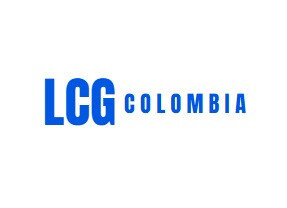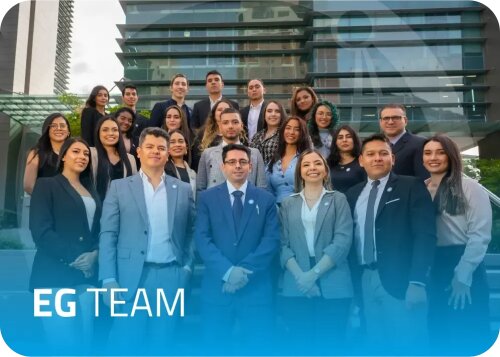Best Restructuring & Insolvency Lawyers in Bogota
Share your needs with us, get contacted by law firms.
Free. Takes 2 min.
List of the best lawyers in Bogota, Colombia
About Restructuring & Insolvency Law in Bogota, Colombia
Restructuring and insolvency law in Bogota, Colombia, is designed to help businesses and individuals manage financial distress, avoid bankruptcy where possible, and resolve debts effectively. The aim is to protect both creditors' and debtors' interests, provide mechanisms for the continuation or liquidation of businesses, and ensure orderly resolution of insolvency matters. In Bogota, these processes are governed by national regulations mainly found in the Colombian Insolvency Regime and overseen by local authorities such as the Superintendence of Companies. With a dynamic economy and evolving regulations, understanding the local legal landscape is crucial for anyone facing financial difficulties.
Why You May Need a Lawyer
Engaging a lawyer knowledgeable in restructuring and insolvency can be vital in several common situations:
- You are a business owner facing cash flow problems and considering reorganization to pay creditors while keeping the business operating.
- Your company is at risk of bankruptcy, and you need advice on available legal options or alternatives.
- You are an individual unable to pay off mounting debts and need guidance regarding personal insolvency or negotiations with creditors.
- You are a creditor needing to understand how to protect your rights or recover assets from an insolvent debtor.
- You are involved in a contractual dispute related to insolvency proceedings and need representation.
Navigating insolvency laws without legal guidance can lead to missed opportunities for negotiation, failure to meet legal obligations, or loss of rights. A skilled attorney provides sound advice, representation in court or before local authorities, and helps ensure compliance with all legal requirements.
Local Laws Overview
Colombia's insolvency framework is mainly governed by Law 1116 of 2006, which regulates business restructuring and insolvency. The process is administered by the Superintendence of Companies (Superintendencia de Sociedades), which oversees both voluntary and involuntary proceedings in Bogota. Key aspects include:
- Business Restructuring (Reorganización Empresarial): Designed to help viable businesses reorganize their debts through voluntary agreements with creditors, allowing the company to continue operating.
- Judicial Liquidation (Liquidación Judicial): In cases where restructuring is not viable, this process leads to the organized sale of assets and distribution of proceeds to creditors.
- Personal Insolvency: Individuals can access mechanisms for negotiated payment agreements where they cannot meet their debt obligations.
- Statutory notice periods, creditor classifications, payment preferences, and submission of financial documentation are tightly regulated.
- International elements, such as cross-border insolvencies, are addressed through specific provisions.
- Recent reforms have aimed to modernize the process, improve creditor participation, and make insolvency procedures more agile, especially for micro, small, and medium-sized enterprises (MSMEs).
Compliance with these laws and procedures is critical, as failing to do so can result in legal sanctions or the loss of certain rights in the process.
Frequently Asked Questions
What is the difference between restructuring and insolvency in Colombia?
Restructuring aims to reorganize a business or individual's debt to allow continued operations, while insolvency may lead to liquidation if debts cannot be repaid and no viable restructuring is possible.
Who can initiate insolvency proceedings in Bogota?
Both debtors and creditors can file for insolvency proceedings, depending on the situation and applicable criteria as set out by law.
What happens to employees during restructuring or insolvency?
Employee rights are protected by law, with salaries and benefits typically given preference over other creditor claims during insolvency and restructuring proceedings.
How long does the insolvency process take?
The timeline varies depending on the case's complexity and type, but proceedings often take several months or longer. The law sets out some deadlines to expedite the process, especially for MSMEs.
Can I negotiate directly with creditors outside of court?
Yes. Pre-insolvency negotiations and out-of-court agreements are permitted and encouraged, especially in the early stages of financial distress.
Is insolvency a public process in Colombia?
Certain filings and actions are public, particularly those overseen by the Superintendence of Companies, to ensure transparency and creditor notification.
What roles do local courts and authorities play?
In Bogota, insolvency matters are mostly handled administratively by the Superintendence of Companies. Ordinary courts may become involved in specific disputes.
Will restructuring affect my credit rating?
Yes. Entering formal restructuring or insolvency can impact your creditworthiness and ability to obtain future financing, but it may also facilitate a return to financial health.
Can foreign creditors participate in insolvency proceedings?
Foreign creditors have rights similar to local creditors and can be included in Colombian insolvency processes according to established procedures.
What documentation is required to file for insolvency?
You will need to provide detailed financial statements, a list of creditors and debts, assets, and other supporting documents as specified by the law and the supervising authority.
Additional Resources
If you are seeking more information or support regarding restructuring and insolvency in Bogota, the following organizations can be helpful:
- Superintendence of Companies (Superintendencia de Sociedades): The governmental body responsible for insolvency proceedings and regulation enforcement.
- Chamber of Commerce of Bogota (Cámara de Comercio de Bogotá): Offers advisory services for businesses dealing with insolvency and restructuring.
- Colombian Bar Associations: Provide access to qualified legal professionals with experience in insolvency cases.
- Universities and Legal Clinics: Some academic institutions in Bogota offer legal clinics where individuals and small businesses can receive free or low-cost legal advice.
Next Steps
If you believe you need legal assistance in restructuring or insolvency:
- Gather all relevant financial documents and information related to your debts, creditors, and assets.
- Consult with a qualified insolvency lawyer who understands local Bogota regulations and has experience in similar cases.
- Consider alternatives such as direct negotiation with creditors before initiating formal insolvency procedures.
- Be proactive. Early legal advice can make a significant difference in the available options and outcomes.
- Follow all legal requirements and procedural deadlines to avoid additional complications or penalties.
Taking these steps will help you make informed decisions, protect your interests, and navigate financial difficulties with greater confidence.
Lawzana helps you find the best lawyers and law firms in Bogota through a curated and pre-screened list of qualified legal professionals. Our platform offers rankings and detailed profiles of attorneys and law firms, allowing you to compare based on practice areas, including Restructuring & Insolvency, experience, and client feedback.
Each profile includes a description of the firm's areas of practice, client reviews, team members and partners, year of establishment, spoken languages, office locations, contact information, social media presence, and any published articles or resources. Most firms on our platform speak English and are experienced in both local and international legal matters.
Get a quote from top-rated law firms in Bogota, Colombia — quickly, securely, and without unnecessary hassle.
Disclaimer:
The information provided on this page is for general informational purposes only and does not constitute legal advice. While we strive to ensure the accuracy and relevance of the content, legal information may change over time, and interpretations of the law can vary. You should always consult with a qualified legal professional for advice specific to your situation.
We disclaim all liability for actions taken or not taken based on the content of this page. If you believe any information is incorrect or outdated, please contact us, and we will review and update it where appropriate.















